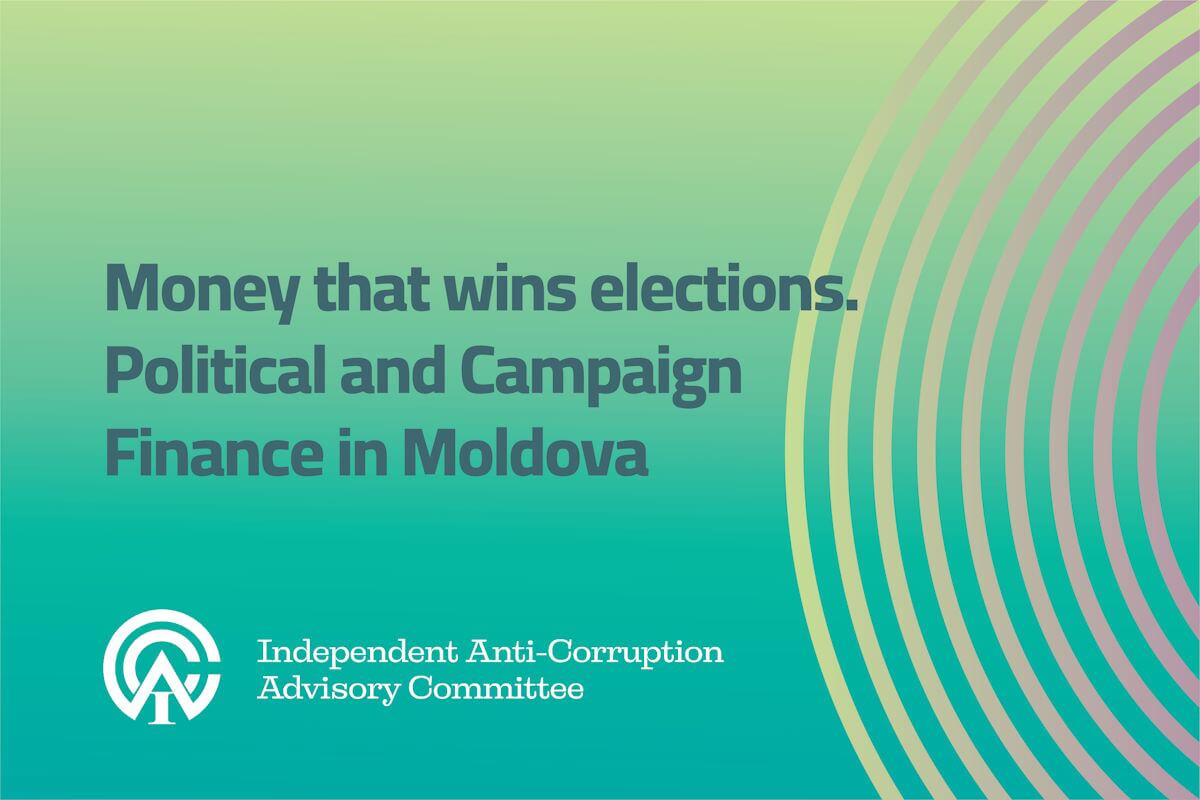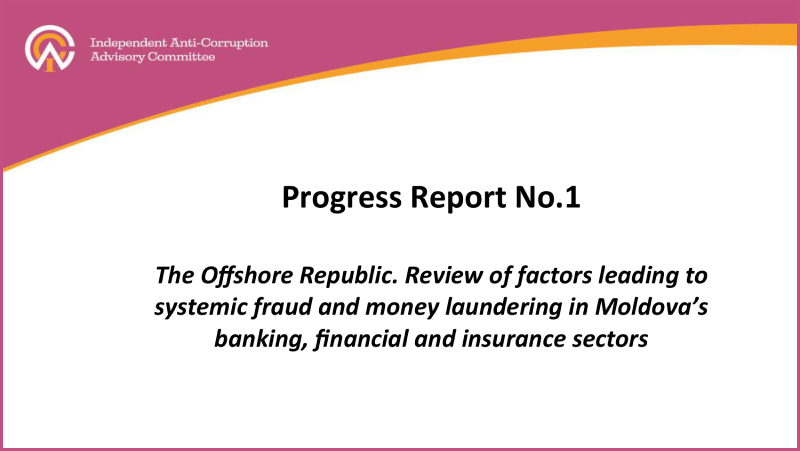The Independent Anti-Corruption Advisory Committee (CCIA) launches its third report which seeks to identify legal, institutional and practical deficiencies in the systems of political financing in the Republic of Moldova and their impact on the functioning of a democratic state in which the Moldovan citizens enjoy governance through elected authorities free of undue influence of interest groups.
The lack of continuous institutional commitment to performing oversight duties stems from the instability and frequent changes of government and of the political landscape and from porosity between party and civil service. There is little incentive to be firm on those in power and decisive in strict oversight of those in the opposition as they can easily, and often do, switch places after the next elections. This is one of the takeaways of the report Money that wins elections. Political and Campaign Finance in Moldova. The drafting of the report was carried out with the financial support of the European Union and the U.S. Department of State’s Bureau of International Narcotics and Law Enforcement Affairs. Its content represents the sole responsibility of the Independent Anti-Corruption Advisory Committee, and does not necessarily reflect the views of the European Union, the U.S. Department of State or the German Federal Ministry for Economic Cooperation and Development (BMZ).
The analysis looks at political parties’ sources of funding, expenditures, disclosure procedures, reporting and transparency of accounts. It reflects the media presence as an asset and its role in monitoring and advertising political campaigns and parties. The mandate of oversight bodies, with prevalence of Central Electoral Commission is thoroughly examined. Vulnerabilities related to undue influence of interest groups and affluent individuals, third party funding, foreign funding and its influence and prevalence of cash transactions and use of cryptocurrency are being tackled.
Consequently, a set of 52 recommendations is put forward whose implementation will facilitate the process of achieving the goals on disclosure requirements, oversight of the financing of election campaigns and of political parties and the state funding. The report is based on qualitative analysis of relevant legislation, documents, and relevant reviews as well as on quantitative analysis of the data from the political parties’ annual financial reports and final campaign finance reports.
This is the third report of the CCIA. The previous ones analyzed the factors which led to systemic fraud and money laundering in the Moldovan banking, financial and insurance system and the architecture of the anticorruption institutions. The upcoming report shall assess high level corruption in state owned enterprises.





